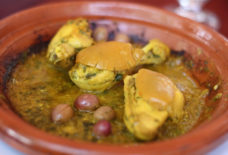Ahmed Ahmed's Middle Eastern Comedy Adventure
A few years ago, Albert Brooks went Looking for Comedy in the Muslim World.
With Just Like Us, Ahmed Ahmed found it.
The documentary – of a tour of Middle Eastern countries by Ahmed and a group of other Arab-American comedians (and comics of other ethnicities) – opens Friday (6/10/11) in New York and elsewhere before going wider. For Ahmed, it was a chance to document the experience he’d had at a performance in Dubai.
“I was hired to do a private show in Dubai, to raise money to put Palestinian kids through medical school – and the audience was 500 of the wealthiest Arabs I’d ever seen,” says the 40-year-old Egyptian-American comedian. “I met a producer for Showtime Arabia and he said we should do a public show. Could we do it legally? Well, no.
“I have a friend there who owns a loft. So we sent out, like, 20 or 30 emails announcing the show – and 48 hours later, 500 people showed up. They were mostly 18-to-30-year-olds, smoking, drinking, wearing Gucci and Prada. It was the modern generation at this offbeat, makeshift show. And I thought, well, if 500 people showed up from a few emails, what would happen if we did it properly?”
That led to a tour Ahmed called “The Axis of Evil Tour,” which he taped and which became a hit on Comedy Central. So Ahmed put together another tour – featuring himself and comics like Maz Jobrani, Omid Djalili, Tom Papa and Tommy Davidson – and took a pair of cameras along.
The result was Just Like Us, part comedy performance, equal parts cultural exchange. As Ahmed and company go from Dubai (heavy censorship) to Lebanon (no censorship) to Egypt and Saudi Arabia, they explore the nature of comedy and the way Americans look at both Arabs and Muslims (as well as why they often conflate the two).
As the film’s director and co-producer – as well as star – Ahmed has his hands full with the film’s release: “I feel like a traveling businessman,” he says.
“Sometimes I find myself being more of a producer than a comic. But comedy keeps the lights on, by definition. I tried to be an actor for seven years and I made a living playing terrorists and taxi drivers. I got frustrated when my agent said, ‘Unless you change your name, you’ll only ever play Arab roles.’ When I said, ‘Well, what should I change it to?’, she said, ‘How about Rick?’ And that wasn’t happening.
“I ran out of money and started waiting tables and that’s how I found stand-up. I had to make the customers laugh because the food at the restaurant where I was working wasn’t that great.”
As he put together the tours for “Axis of Evil” and “Just Like Us,” Ahmed found that free speech was a uniquely American ideal. Elsewhere, more control was exerted over what he and his cohort could and couldn’t say.
“Some countries made us type out our act and then would translate it into Arabic,” he says. “Then they’d say, ‘We don’t understand – there’s nothing funny here.’ When we went to Kuwait, they said, ‘Don’t touch sexuality, religion or politics.’ It’s like – what else is there? In Dubai, they told us we couldn’t say ‘fuck’ – and eventually we negotiated our way up to two ‘fucks’ apiece. And then they said, ‘No – no ‘fuck.’’ Then we got to Beirut and it was ‘Say whatever you want.’”
Ahmed grew up in Riverside, Calif., where he remembers being “the only Arab family in the neighborhood. We were like ‘The Munsters’ – except our house smelled of garlic and cumin. My friends were always mystified by the weird spices – and the fact that we had no symbols of Christmas.
“Plus my family only ate Halal food – and there was no place that sold it. So once a week, my father would load up the station wagon with livestock and bring it home. At 5 every afternoon, my mother and father would come out and butcher whatever we were having for dinner. The kids in the neighborhood would come over and play with the animals. And it would be, like, ‘What happened to the rabbit you had yesterday?’ ‘Oh, we ate it.’”
One reason Ahmed made “Just Like Us” was to show that, in fact, there is comedy in the Muslim world – a fact that seems to continue to escape Hollywood.
“Hollywood is still very unforgiving when it comes to racial stereotypes,” he says. “You never see a funny or likable Arab in a movie or TV show. You rarely see a humanized Arab on the news channels.
“Still, at the end of the day, it’s not Hollywood’s fault. It’s our responsibility to tell our own stories. The Arab world has money – they should stop investing in minimalls and send checks to my production company!”
Marshall Fine
The Huffington Post



